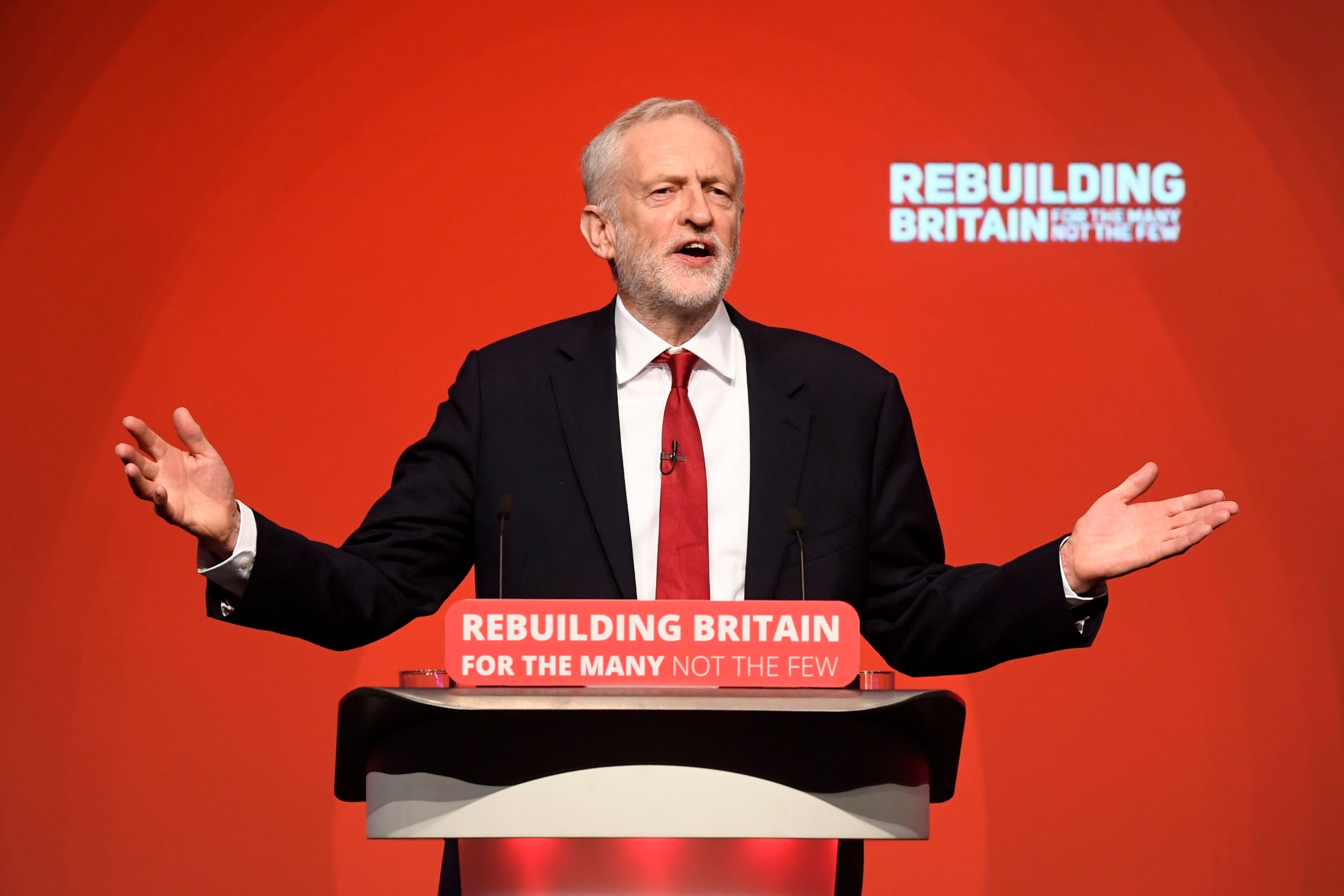While Jeremy Corbyn spoke for the many, Theresa May was promising businesses low corporation taxes
Business doesn’t like Labour’s agenda, but it acknowledges that the party is asking the right questions


“I reach out to everybody,” Jeremy Corbyn said in an unscripted aside during his closing speech to the Labour conference. To everyone’s surprise, that included Theresa May. Despite Labour’s repeated warnings that it will vote against her Brexit deal in parliament, Corbyn suggested that it might yet support her.
It was a reassuring nod to Leave voters after a heated debate this week on whether his party would put staying in the EU on the ballot paper in any second referendum.
Corbyn’s conciliatory move probably won’t lead anywhere; it’s still a safe bet that Labour will vote against any May deal. But making it proved he was talking to the country as well as the party faithful, a good thing for a leader sometimes accused of being more interested in entrenching the left’s power in his party than winning it.
“Love Corbyn, Hate Brexit” – the slogan of left-wing anti-Brexit campaigners – proved an accurate reading of the party’s temperature. The ecstatic reaction in the conference hall to Corbyn’s closing speech today showed that his party still adores him. But the mood at packed fringe meetings showed that Labour is at heart a pro-European party, even if its leader is not. Pointedly, Corbyn chose not to mention that the conference decided to include a Final Say referendum in the party’s Brexit options.
After public divisions over a referendum and faction-fighting between his allies in Momentum and the trade unions, Corbyn made a surprisingly strong plea for unity and tolerance inside the party. His statement that Labour is a “broad church” was designed to reassure Corbyn-sceptic MPs who fear deselection and are considering whether to resign the party whip. His move is welcome. But the MPs doubt he will intervene if and when left wingers move against them.
Although Labour did not escape the shadow of Brexit this week, it successfully won a hearing for what Corbyn called its ambitious plans to “rebuild and transform Britain”. While he unveiled no new policies today, he reprised those set out earlier, arguing that Labour “represents the new common sense of our time” and presenting it as a bulwark against the populists gaining ground across Europe. “Unless we offer radical solutions, others will fill the gap with the politics of blame and division,” he said.
There was a coherent theme running through Labour’s announcements as it fleshed out a manifesto rushed together for last year’s snap election. In fact, Labour has gone much further. The detail coloured in this week was unashamedly red. A manifesto produced now would be more radical and bold than last year’s.
Labour needs to be clear about the cost of renationalising water, rail, the Royal Mail and parts of the energy sector
To its credit, Labour is being open about its goal: a fundamental shift to build a fair economy and society. Neatly, the measures to achieve this involve a direct redistribution of wealth and power. So money raised from a £3,000-a-year tax on second properties used as holiday homes would fund housebuilding and tackle homelessness.
Workers in companies employing more than 250 people would elect a third of the board members over 10 years and own 10 per cent of the shares, with dividend payments of up to £500 a year. (Labour frontbenchers have a clever two-word answer when asked if this means turning back the clock to a failed socialist agenda: “John Lewis”.)
The many, whose wages have stagnated since the 2008 crash, would at last receive some of the benefits accrued by the few in what Corbyn called “a broken economic system”. His “for the many, not the few” pitch was in stark contrast to May’s speech in New York promising low corporation taxes. Corbyn’s was designed to appeal to the disenchanted “left behind” who voted Leave in the 2016 referendum – a recognition that Labour will need their votes to grow its support at last year’s election.
Business doesn’t like Labour’s agenda, of course, and is already squealing. But it acknowledges that Labour is asking the right questions.
However, Labour seems to be running up a lot of new spending pledges. Tory attacks on “unfunded commitments” are ritual but could hit home with voters not yet convinced that Labour is a government-in-waiting. Unlike the Tories, at last year’s election Labour showed how it would balance the books (though the Institute for Fiscal Studies begged to differ). Labour needs to be similarly clear about the cost of renationalising water, rail, the Royal Mail and parts of the energy sector.
John McDonnell, the shadow chancellor, had a good week in Liverpool. He is prepared to show the pragmatism needed to win power that Corbyn often shies away from. But McDonnell’s declaration that “the greater the mess we inherit, the more radical we have to be” keeps coming back to mind. Labour could conceivably take office in a “Brexit recession”; it could not then defy the laws of global economic gravity and McDonnell would need all the pragmatism he could muster. Some of Labour’s ambitious spending plans might have to be put on hold.
Labour displayed energy and confidence this week. Many delegates convinced themselves the Brexit fallout could result in an election soon. Worryingly, despite that, they did not hold back from the faction-fighting that is not a good look for the voters.
Join our commenting forum
Join thought-provoking conversations, follow other Independent readers and see their replies
Comments